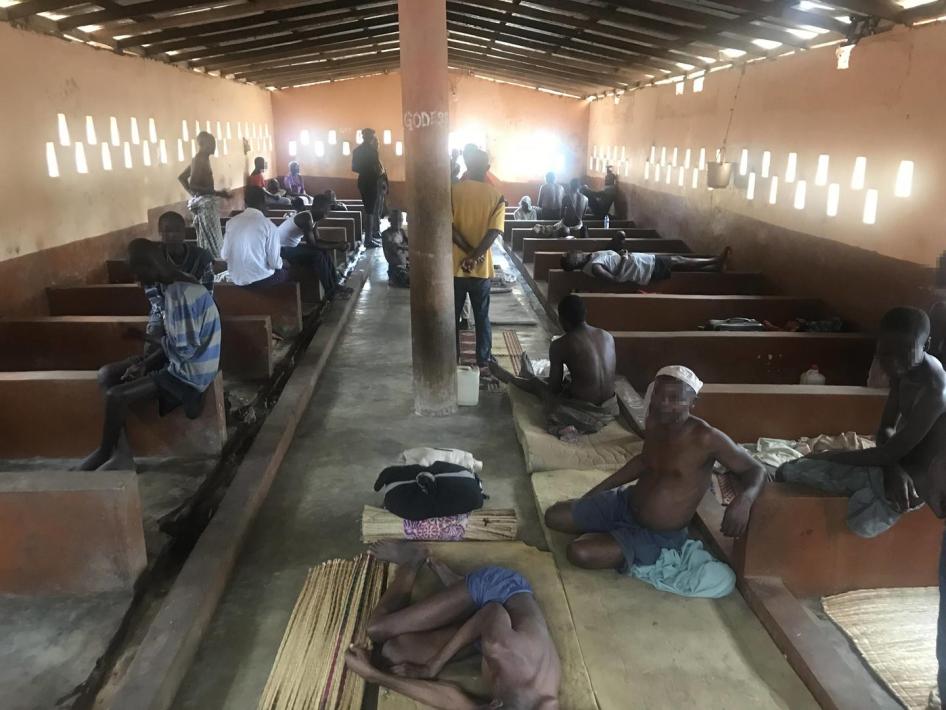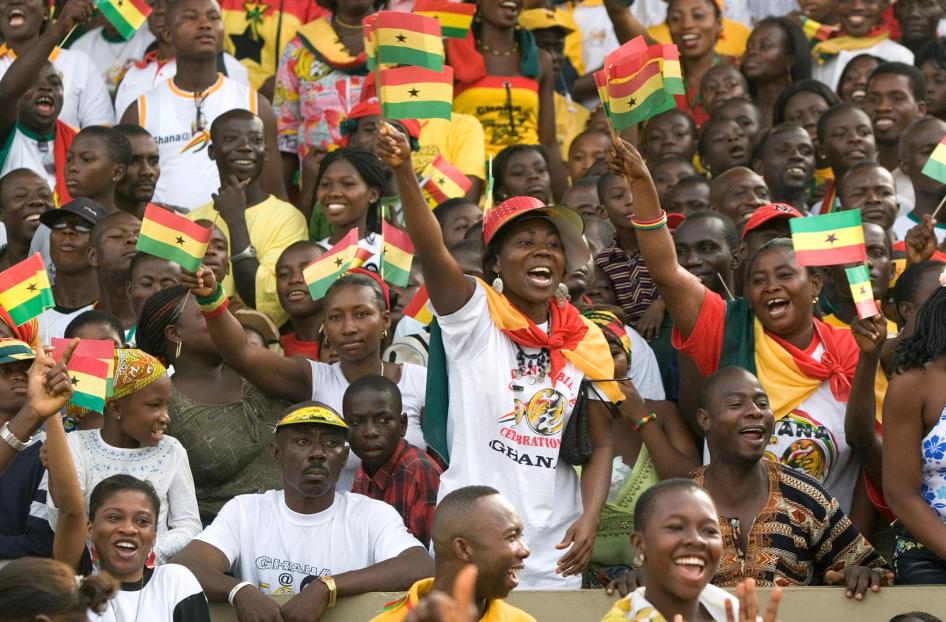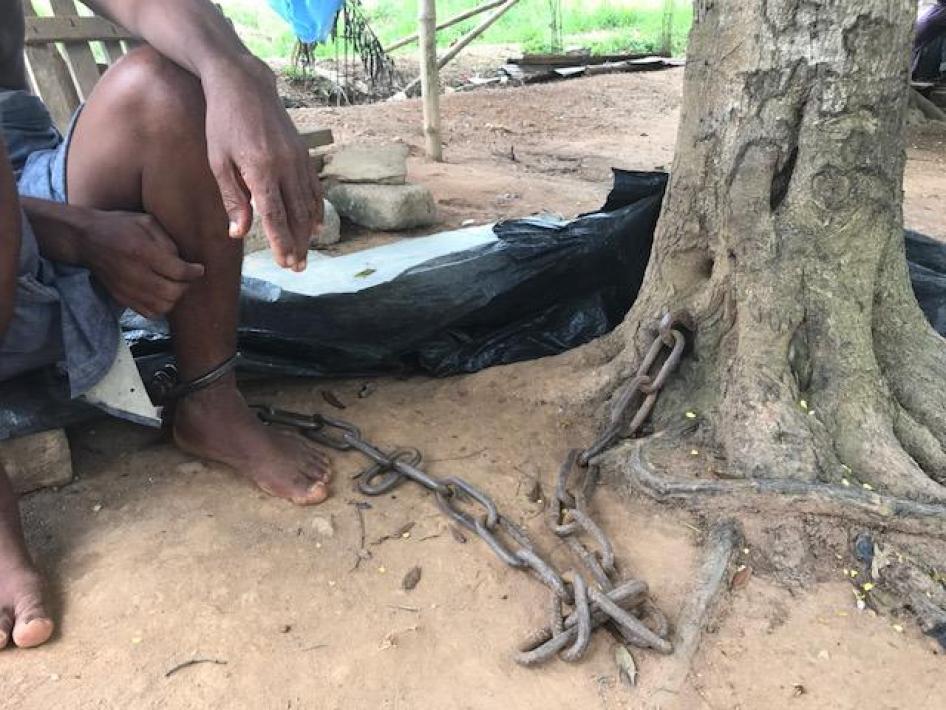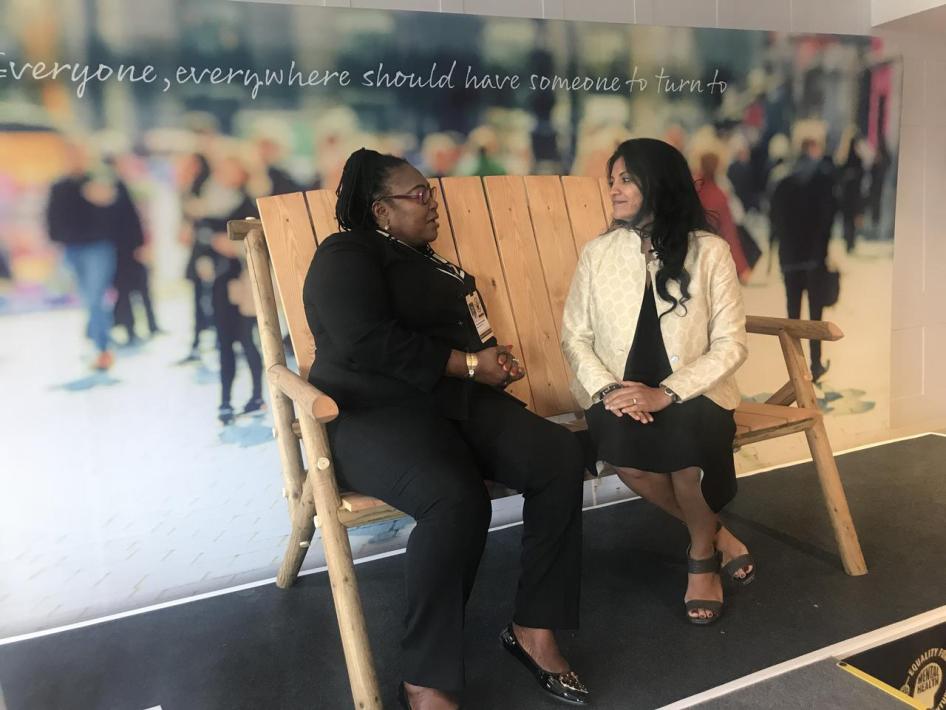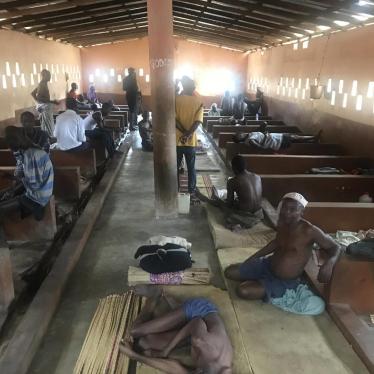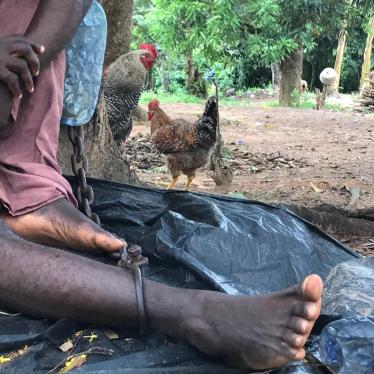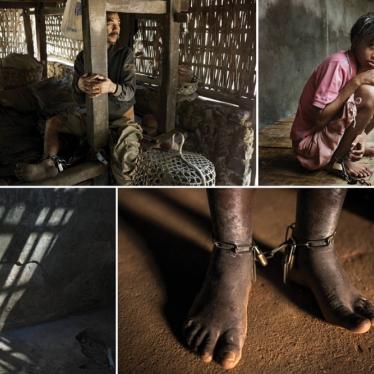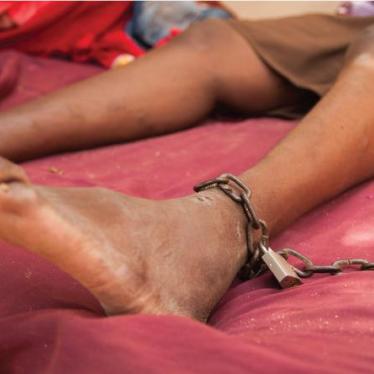On my Twitter feed last week, I saw many images of Ghanaians celebrating Independence Day: people dressed in their finest, cheering and waving flags, marching bands playing, ordinary Ghanaians dancing in the streets.
But I had trouble reconciling these images with those I’m more familiar with in Ghana: a dark room with dozens of men cramped together with little to no ventilation, their legs bound by heavy metal chains; men and women stripped of their dignity and their clothes, calling out to me to bring them food and help get them out.
These Ghanaians are not celebrating Independence Day. Instead, they are locked away in prayer camps simply because they have real or perceived psychosocial disabilities (or mental health conditions).
In October 2017, the Ministry of Health pledged to enforce a newly adopted ban on shackling. But when I visited one year later, little had improved. I joined the head of the Mental Health Authority, Dr. Akwasi Osei, to visit Mount Horeb Prayer Camp in Mamfi, where we saw firsthand how people brought there by their families for prayer and healing were locked up in chains, and denied adequate food, hygiene, and freedom. He was clearly moved and called on the leadership of the camp to end the use of shackles, citing the government’s commitment to enforce the ban.
As Dr. Osei said, “You and I can be in their shoes. …Would [you or] I be happy to be treated in that way? All of us would say ‘No’.”
Just one month later, I sat with the deputy minister of health on the “friendship bench” during the Global Summit on Mental Health, where she reaffirmed Ghana’s commitment to end shackling and ensure that people with psychosocial disabilities are treated with dignity.
There are some signs of progress. On February 26, the WHO launched its Quality Rights initiative in Ghana, supported by the UK’s development agency, a program aimed at training at least 5,000 people on ways to improve the quality of mental health services and ensure respect for human rights. This effort, by the government’s own admission, aims to address the well-documented abuses against people with psychosocial disabilities.
This is an important step forward, but it should not overshadow the reality that hundreds of people with mental health conditions remain in shackles.
Ghana needs to enforce the ban on shackling and ensure that conditions in prayer camps and psychiatric hospitals meet international human rights standards.
The people I met in Mount Horeb are not in a position to post joyful photos on social media, but the government should ensure that they – like all Ghanaians – can celebrate their independence from chains and indignity.

